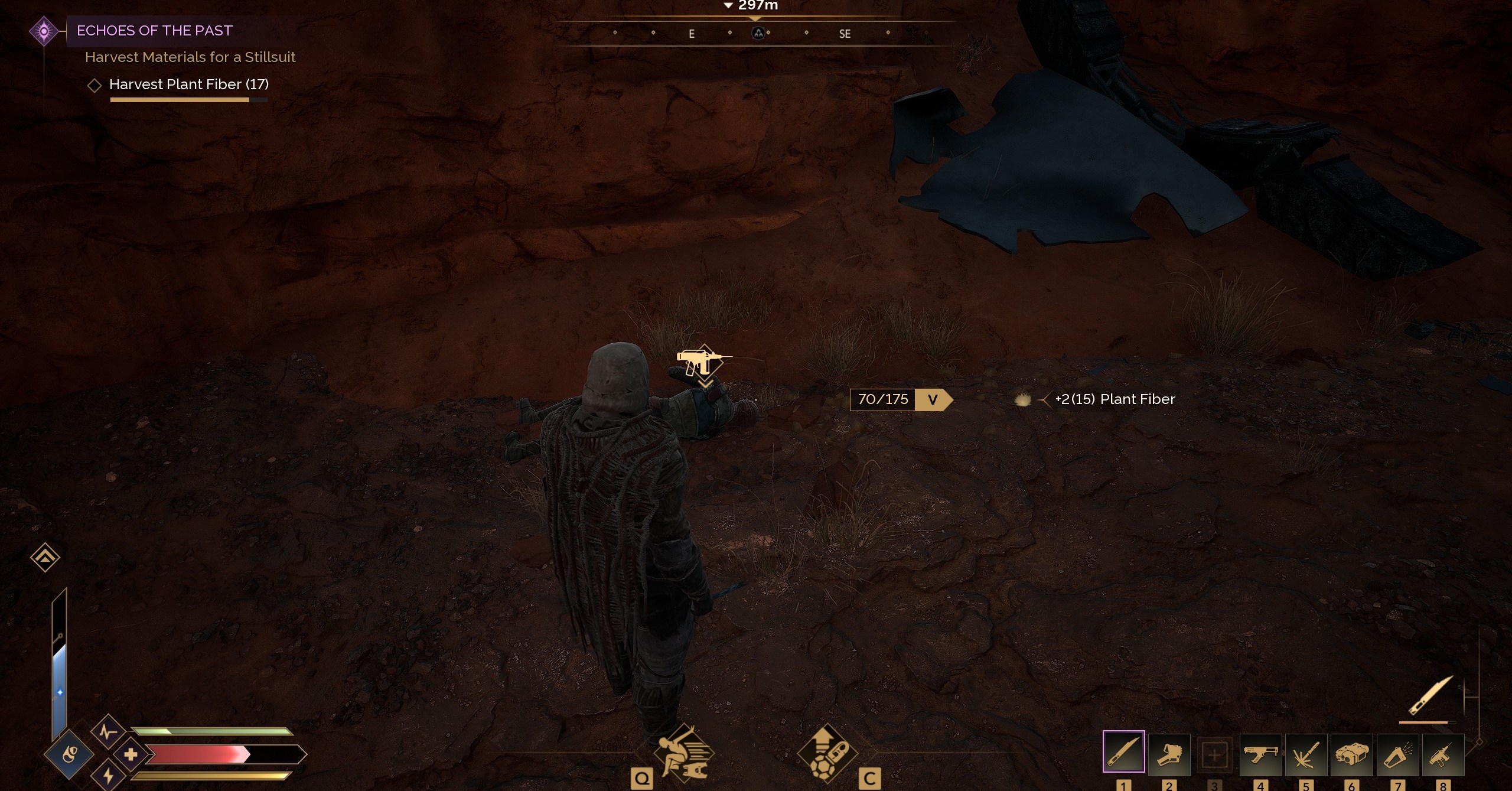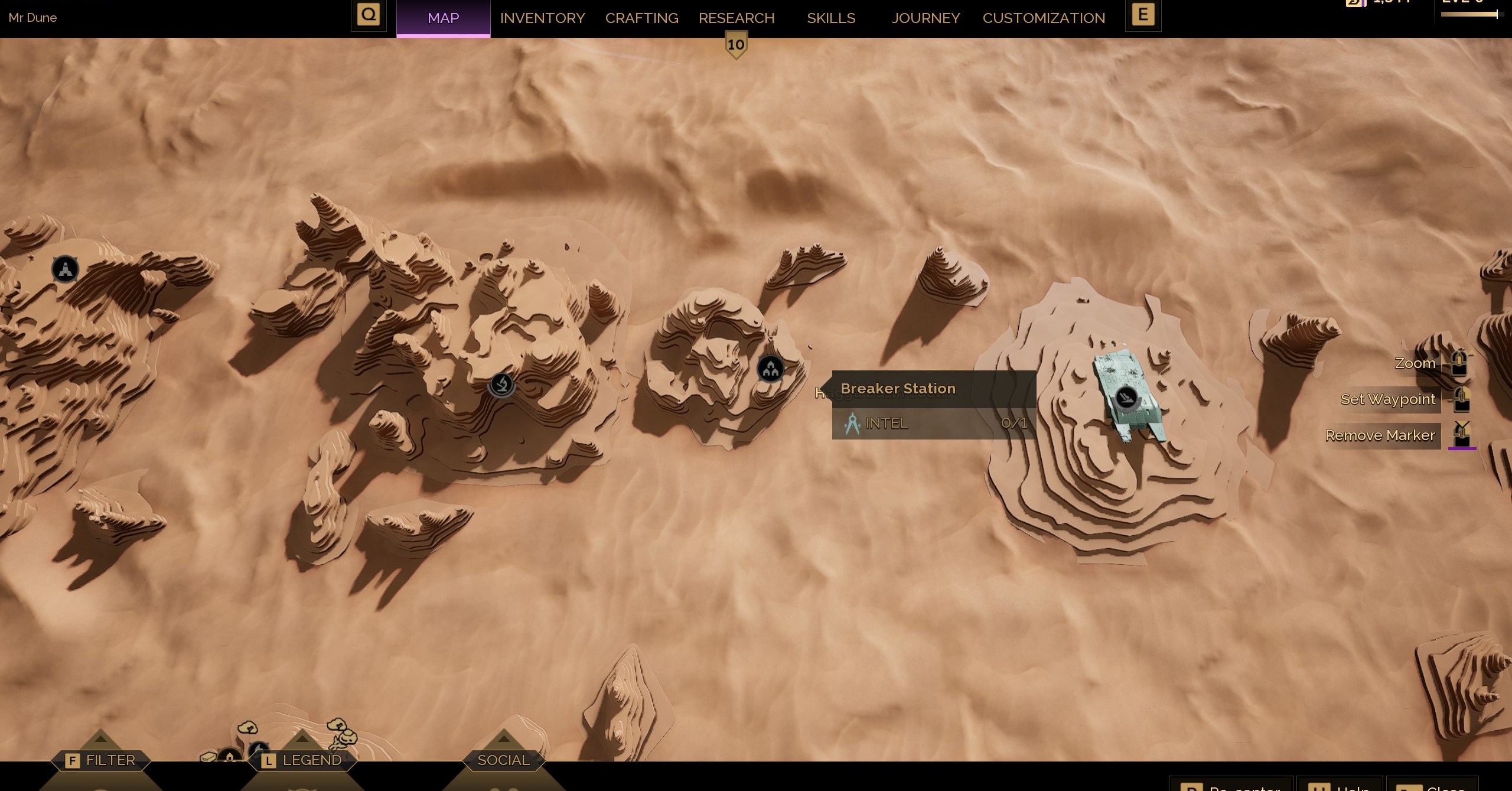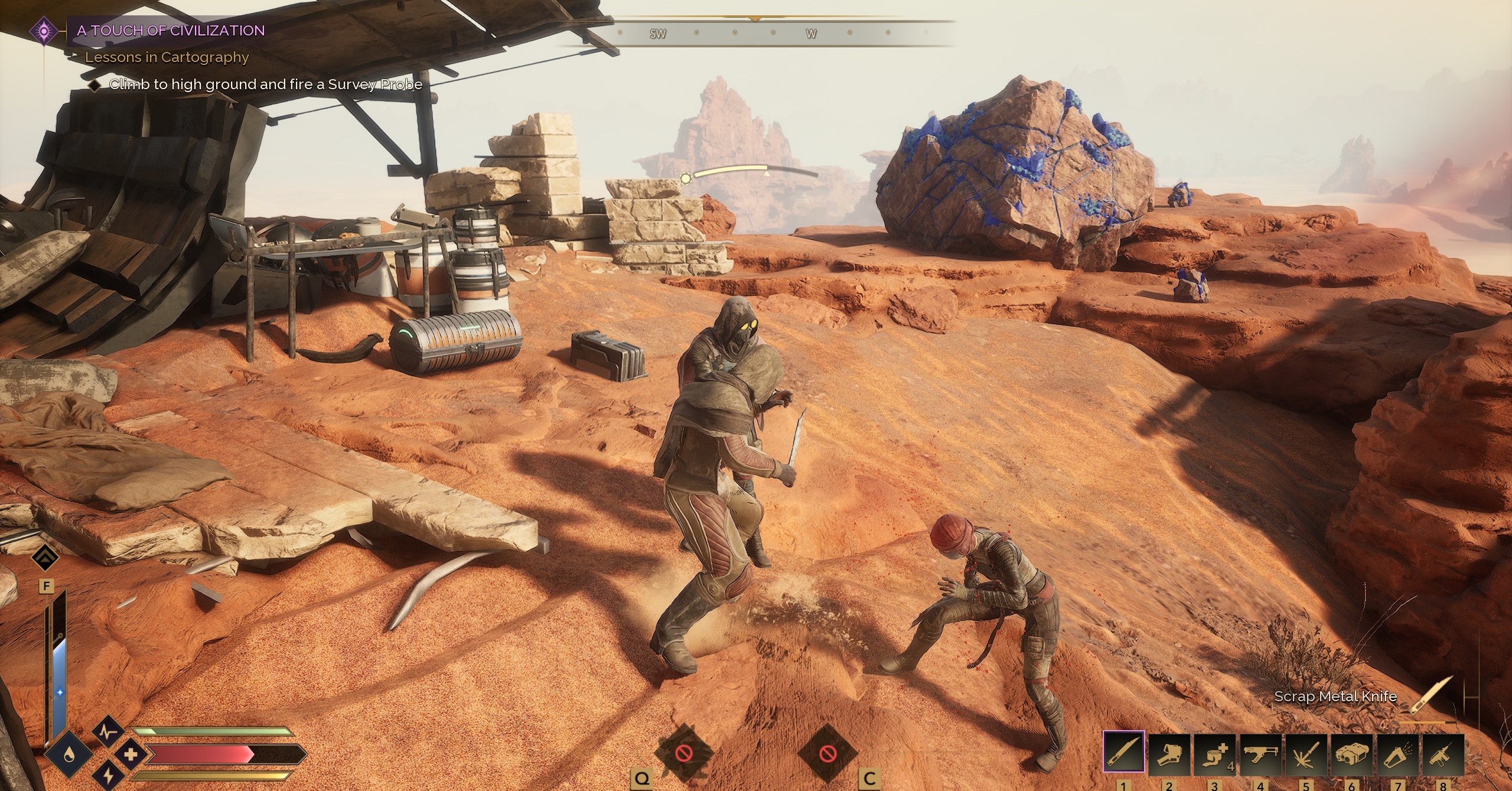If you’re just getting started in Dune: Awakening, the ins and outs of making it through each day on Arrakis might seem more than a little overwhelming. There’s a detailed prologue that walks you through some of the basics, but it doesn’t tell you everything and leaves a lot to the assumption that you’ll figure it out as you go along. Dune: Awakening is much more forgiving than some survival games, but not having to learn things the hard way means you can focus your time and resources on things that matter.
We’ve compiled a list of Dune: Awakening beginner tips and tricks to help get you started on Arrakis, everything from how to keep hydrated to the best skills to focus on early in the game.
1. Don’t build your base on the sand. Zantara, your guide, only tells you this after your first construction project, but if you build on the sand, the foundations will get swept away whenever a storm blows through.
2. Don’t get too attached to your first base, either. You’ll have to abandon it after making some story progress, and even though demolishing constructions will refund your building materials, carting everything you stored to your new base is a pain.
3. Focus on raising your faction reputation in between completing main and side quests. Raising faction reputation is key to unlocking some of Dune Awakening‘s bigger features, including the option to buy your own Ornithopter.
4. Don’t neglect the main quest, either, as completing story quests unlocks new technologies and teaches you how to use some of Dune: Awakening‘s more nuanced systems.

5. Kill scavengers and extract their blood whenever you can. It sounds gruesome, but their blood is the most reliable way to have fresh water on-hand after you craft the blood refiner.
6. Scavengers respawn after a short time, the same as resources, so you won’t lack opportunities to harvest fresh blood.
7. Pay attention to the sunstroke bar, and avoid letting it max out. Sunstroke won’t kill or damage you, but it does make you dehydrate more quickly. Dehydration lowers your stamina and, at full dehydration, you lose health.
8. Keep a stock of purified water on-hand at your base at all times. The Stillsuit’s hydration mechanism is a helpful top-up, but it charges too slowly to make it your primary water source.

9. Daytime exploration exposes you to dangerous heat, so if you have to go out before night falls, make sure you plot a path that includes areas where you can rest in shade.
10. Ignore your pistol for a while. Zantara makes a big deal out of using ranged weapons, but they’re incredibly weak for much of the early game. Knife attacks are much faster and safer unless you’re dealing with more than two enemies simultaneously.
11. Grab all the granite, plant fiber, copper, and metal you can find. These materials are required for building walls, foundations, and most other base- and progress-related machines and crafting recipes.
12. Craft a few storage chests early, and dump all your extra rocks, plants, and resources in there before heading out. Your base’s sub-fief has limited initial storage space, and you don’t want to have to waste or discard anything you find on Arrakis.

13. Once you scan an area and can examine nodes on the map, look for Intel nodes. Completing these rewards you with a lot of XP, and they’re usually in outposts or other areas with valuable resources to pick up.
14. Dying is less of an obstacle than you might think in most cases. You’ll respawn with every piece of equipment you died with and can return to collect your pack with all your resources.
15. If a sandworm kills you, though, you lose everything. Plan your trips across open sand carefully.
16. You can’t kill sandworms, so don’t try. The only options for dealing with them are “get eaten” or “run away.”

17. Falling from ledges or other high place can damage you, but never kill you. At worst, it drops your HP to critical, which isn’t ideal if enemies are nearby, but it does mean you can quickly get down from a high place without much worry.
18. It’s completely possible to play solo, even if group play makes things easier. You’ll just need to rely on item trades to cover gaps in your resource management.
19. Mobility is far more important than combat, so invest your skill points in movement and survival skills before spending them on improving weapon damage.
The post 19 beginner’s tips before you start Dune: Awakening appeared first on Polygon.




